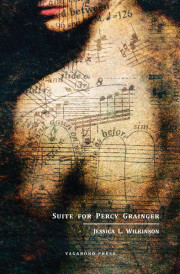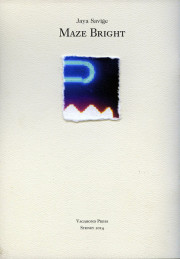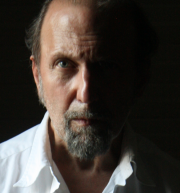Writer, Ali Cobby Eckermann was born in 1963 at Brighton, Adelaide, on Kaurna Country, however, she grew up on Ngadjuri Country. She has travelled extensively, living most of her life on Arrernte, Jawoyn and Larrakia country in the Northern Territory. When she was 34, Eckermann met her birth mother Audrey, and learnt that her birth mob were the Yankunytjatjara people from north-west South Australia. Her mother was born near Ooldea, south of Maralinga on Kokatha Country. Eckermann relates herself to the Kokatha mob too (Ali Cobby Eckermann 2013). Her first verse novel is His Father’s Eyes, and her second verse novel, Ruby Moonlight, won the Kuril Dhagun Indigenous Writing Fellowship, which is part of the black&write! Indigenous Editing and Writing Project sponsored by the State Library of Queensland. Ali has won several awards including: First Prize in ATSI Survival Poetry competition in 2006, First Prize Dymocks Red Earth Poetry Award NT in 2008, and was Highly Commended for the Marion Eldridge Award in 2009. Her poetry has been translated and published in Croatia, Indonesia, Greece and New Zealand. Ruby Moonlight was published in 2012 by Magabala Books, and won the Kenneth Slessor Prize for Poetry and was awarded the “Book of the Year” at the NSW Premier’s Literary Awards in 2013. Ali Cobby Eckermann, a Nunga poet, is the second Aboriginal writer to win the top prize in the NSW Premier’s Literary Awards, in consecutive years. Ali Cobby Eckermann’s important works include:
little bit long time APC, 2009
little bit long time reprinted by Picaro Press, 2010
Kami Vagabond Press, 2011
His Fathers Eyes Oxford University Press, 2011.
A Handful of Sand: Words To The Frontline co-edited with Lionel Fogarty Southerly Journal 2011
Ruby Moonlight Magabala Books, 2012 Deadly Award Outstanding Achievement in Literature
Love Dreaming & Other Poems Vagabond Press, 2012
Too Afraid To Cry Ilura Press, 2013
JS: Could we start with you telling us a little about your childhood, schooling and tertiary education?
ACE: My childhood may sound unusual but it was a regular childhood for many Aboriginal children born in the 1960’s. I was adopted as a baby by the Eckermann family and grew up on a farm in the mid-north of South Australia. Mum and Dad couldn’t have their own children, so adopted the four of us kids. It was a good life: baby lambs and chickens, kittens, the cubby house, gardens and orchards, and the iconic tennis court!
Our family was German Lutheran so we grew a passionate respect for good food and the sharing of it. Collectively our family was self-sustaining, We had a dairy, milked cows every morning and every night. So as children we learnt the practise of hard work. At a young age we learnt to grow sweetcorn, watermelon and tomatoes. My parents were kind people, and I remember their generosity to others. But it was the social arena outside the family group that I found confronting. Even at a young age I remember racism; I did feel that I did not really belong here. Of course this became more evident in my teenage years, at high school, when I met other Aboriginal students, some adopted and some with their families. I had no concept then of the extent of the Stolen Generations in Australia.
JS: You have a strong need to educate and also give a voice to those, who for whatever reasons (lack of education, poverty, marginalisation), cannot get their stories told. Do you know of any specific reasons you care about this why you care so much about this?
ACE: Mostly I feel I have this obligation to myself. In hindsight I grieve the fact that when I was a teenager, and life became very difficult, I can’t remember anyone asking me if I was okay. As an angry young person I did not know how to voice my emotions, and as a result I succumbed to the adoption of my only son. This led to many years of addiction. And it was years later during rehabilitation, that I began to recognise the value of every story, and how to value my own. These skills were reinforced after finding my family, especially by the Aboriginal Elders. It is a true value of my culture, to care for others.
JS: What are the traditions of Oodgeroo Noonuccal and Lionel Fogarty?
ACE: Actually, Lionel Fogarty is one of my best friends. He has been an incredible mentor to me, in my early years, as an up and coming writer. I find his writings powerful; much of what he wrote 35 years ago is relevant today. I was somewhat sad to find Oodgeroo Noonuccal at a mature age; I regret that I did not learn about her poetry whilst in school. Sally Morgan’s My Place was the only book of Aboriginal writing that I discovered and read in my young years.
JS: Who are Nunga?
ACE: Nunga is a collective term for Aboriginal people who live in South Australia. In Queensland the term is Murri, in other states the term is Koori. My traditional family in the desert are known as Anangu.
JS: How are they different from other Aboriginal communities in Australia?
ACE: I believe, in respect to Aboriginal literature, there is a collective spirit. As Aboriginal writers we need to truly support each other, and support each other to mentor the craft. Each writer will identify by their Language Group name, and may casually refer to the collective terms. Mostly I identify as a Yankunytjatjara writer, and most of my poetry is influenced by the natural landscape of my people.
JS: Who are some of the important contemporary Indigenous writers ?
ACE: Lionel Fogarty is one of Australia’s most important writers. He first published his poetry as a young man in his 20’s. The journey of his life has been shared through his poetry, and is a truly honest gift to the world. Kim Scott and Alexis Wright have both won the Miles Franklin Award, the most prestigious literature award in Australia.
A Facebook site BlackWordsAustLit is the best resource of Indigenous Literature in Australia. It is both an archive and an introduction to our newest writers. Check it out and follow the prompts.
JS: How many Indigenous authors write in English?
ACE: Most Aboriginal authors and poets write in English. I believe the publishing world requires this, for the selling of our books. It is also a legacy of the removal of so many of us from our family. And the cost of translation in Aboriginal language is very expensive. I feel sometimes the cost is the preventative, and of course we are not empowered to change this. On the other hand the resurgence of Aboriginal language, at a community level, is truly inspirational. Many families and young people are relearning these ancient languages; our mother tongue.
JS: Tell us about the Stolen Generation?
ACE: My mother was separated from her mother at the age of seven. This is very confusing for her, as the mission where they lived had a Children’s Home, to prevent the removal of children. It seems my mother was an amazing student, and it was deemed that continued association with her family would be detrimental to her education. She told me that she would watch from the window as her siblings went with Kami and other family members to hunt for lizards and other bush tuckers. She told me she felt sad. And this is one of the main legacy’s of Stolen Generation removal, the sadness that still exists inside us.
I was 33 when I found my mother. At the time she was the Co-Chair for National Sorry Day, an annual day of remembrance and celebration dedicated to the Stolen Generations. Her legacy in life is amazing.
JS: Many of your poems start with “ooooo’. What does this mean?
ACE: This was an error, a typo. The title of these poems is clear. I did get a shock when I saw the publication of this. Now it remains as a mystery for the readers.
JS: What are your important themes of writings?
ACE: I would hope all my writings achieve my basic goals; to promote healing and understanding between Aboriginal people and the rest of the world. As I travel internationally I often hear how media has portrayed us incorrectly, that our rights have been returned to us, how past issues have been resolved. This is not the truth!
I do enjoy meeting writers from other cultural backgrounds. Mostly our issues are similar, and often we share a similar expressionism. This has an empowering effect on me. I love reading global poetry.
JS: Could you please mention a few poems which represent you as a Nunga writer?
ACE: Circles & Squares, First Time, Love Dreaming, Ribbons, Wallaroo
JS: You have written verse novels. What stories do they tell?
ACE: My first novel His Fathers Eyes was commissioned to explain the Stolen Generations to upper primary and lower secondary students. It is published by Oxford University Press in the series Yarning Strong. My second verse novel Ruby Moonlight is a story of massacre, the often unmentioned history of colonial impact. It tells the story of Ruby, who survives the massacre of her entire family. I set this story in the 1890’s. I was moved beyond words in 2012 to receive the Deadly Award for Outstanding Achievement in Literature (an Aboriginal Award) and again in 2013 when Ruby Moonlight won the Kenneth Slessor Poetry Prize and the NSW Premiers Book Of The Year. This book should be in every school library.
JS: You have already attended translation workshops in India. What is your experience? Do you think that translation works are close to text/original?
ACE: The experience of the Autumn School for Literature Translations is an amazing experience. The passion of the selected students is paramount to the success of this. I was immersed into wonderful conversations; I shared many photos of my family and traditional lands. We discussed every detail. And my heart told me during the final recitals that the students had achieved the best translations of my work.
The unforeseen publication of my poems by the Deptartment of Comparative Literature at Jadavpur University is a testament to this. Some of my poems will sit with two or three translations. I am proud that the student’s names and their work will accompany my words. I believe this will become a unique handbook of international translation, due to this shared experience.
JS: What do you hope your work will achieve?
ACE: I write in the hope that my grandchildren will be safe in their true identity in Australia. I write that they will not have to assimilate or change any cultural aspect of themselves to achieve what they want. I write in the hope that Australia will become more mature, to embrace the values that only diversity can bring, to be kinder to the impoverished and the poor, and to stop pretending that these issues do not exist within the national identity.
JS: Are you familiar with Indian Dalit writers?
ACE: In 2012 the University of Western Sydney hosted a two-day festival for Australian and Indian writers. Alexis Wright and I were invited to open panel discussions with two Dalit writers who had travelled from India for this event. It will remain a highlight of my writing career. The panel was judged one of the highlights of the festival.
The opportunity to return to Kolkata, to travel to New Delhi and attend the Jaipur Literature Festival in 2015 will allow me to meet with Dalit Writers again.
JS: Can you describe an “average” working day for you?
ACE: I day dream a lot! Much thought goes into my writing, long before it reaches the page. And some time ago I quit my regular job and returned to visual arts; I love sculpture and painting. I find these two artforms compliment my artistic process. My visual arts actually funds my writing career. So my life is frugal and exciting. There is no ‘average’ day.
JS: If you were to prepare an anthology for school students would you include some of your own poems?
ACE: Of course. Our literature is necessary to inform that our culture still exists, beyond tourism. I would also include oral readings of Aboriginal poetry by Aboriginal poets. I believe our voices bring a beautiful timbre and rhythm of our words, which is both healing and powerful.
JS: Do you believe in Literary Movements? What are its weapons?
ACE: I guess my ‘literary movement’ is the establishment of my Aboriginal Writers Retreat. It is an environment for all writers, however it is Aboriginal themed. Every participant must ‘leave their ego on the highway’ and arrive to a place of equality. This is how we learn. I have enjoyed sharing my space, and watching the outcomes in people. Lionel Fogarty was my first Writer-In-Residence and we co-edited Words To The Frontline: an edition of Southerly, Australia’s premier literary magazine.
Originally I established the retreat in my home at Koolunga, in South Australia. However my personal career has grown beyond my wildest dreams. So I am now in process of mobilising the retreat, and am looking for sponsorship to purchase a caravan. The caravan will be customised to include a workspace and include an extensive library of Indigenous literature. Many grassroots Aboriginal writers have not been exposed to multi-cultural writings. Sometimes there is no literature of any kind in their home environments.
It is my wish now, to travel to communities and transport my workshops there. I believe the main benefit will be tri-generational story-telling and writing workshops.
JS: What are your current engagements?
ACE: Currently I am in the International Writing Program at the University of Iowa in America. It is a three month residency and is funded by the US Deptartment of State. The program has been running since 1967 and has allowed Iowa City to become the only UNESCO City Of Literature in America.
JS: Would you please share a recent poem with us?
Ngingali
my mother is a granite
boulder I can no longer climb
nor walk around
her weight is a constant
reminder of myself
I sit in her shadow
gulls nestle in her hair
their shadows her epitaph
I carry
a pebble of her in my pocket
* Ngingali is Ali’s mother’s traditional name
JS: Thank you! You are an amazing source of inspiration.
Jaydeep Sarangi, is a bilingual writer, academic, editor, translator, and the author of a number of significant publications on Postcolonial issues, Indian Writing in English and Australian Literature in reputed journals/magazines in India and abroad. He has recently collaborated as peer reviewer for CLR, Universitat Jaume I, Spain. He is one of the Editors, “Writers Editors Critics” and the Vice President of literary organization, GIEWEC (head office at Kerala). Widely travelled and anthologised both as a poet and a critic, Dr Sarangi has delivered keynote addresses in several national and international seminars, conferences and read poems/research papers in several continents. He is Associate Professor in the Department. of English, Jogesh Chandra Chaudhuri College (Calcutta University), 30, Prince Anwar Shah Road, Kolkata-700033, WB, India. E mail: jaydeepsarangi@gmail.com






